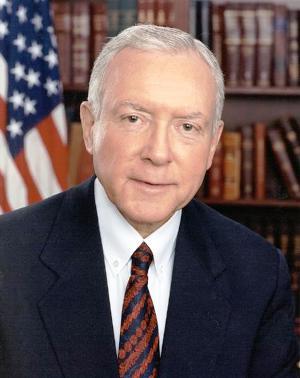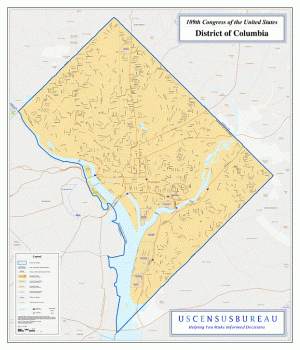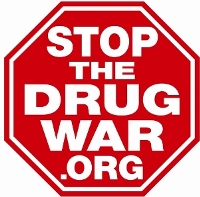The Organization of American States has issued a historic report on drug policy that includes discussion of possible legalization and regulation regimes. It will be the basis for ministerial-level discussions in the region, and could pave the way for discussions at the 2016 UN General Assembly Special Session on Drugs.
A panel of the 6th US Circuit Court of Appeals in Cincinnati has held that the Fair Sentencing Act's reduction in sentencing disparities between crack and powder cocaine offenses should be extended to all federal crack prisoners, regardless of when their offense took place.
Medical marijuana has passed the Illinois legislature. Will the governor sign the bill into law? Stay tuned.
A Los Angeles medical marijuana dispensary regulation initiative that would cap their number at about 135 was approved by voters Tuesday.
An amendment to allow industrial hemp planting has been added to the omnibus farm bill. Both Oregon senators and both Kentucky senators support it, and so does Vermont Sen. Pat Leahy.
Sen. Orrin Hatch (R-UT) has added an amendment to the immigration reform bill that would create enhanced penalties for marijuana grows on federal public lands -- no matter what your citizenship status.
The Washington, DC, city council could take up a decriminalization bill this summer. If the council doesn't act, reformers are considering an initiative, maybe even a legalization initiative.
From the US Supreme Court to the local city council chambers, medical marijuana continues to be a contentious issue. Here's the latest.
Sequestration is hobbling the military's ability to catch cocaine-smugglers headed for the US, the commander of the Joint Interagency Task Force complained Wednesday.
A high-speed police chase on I-80 in California's Sierra Nevada mountains Monday left one man dead and the highway strewn with containers and jars of marijuana.
New York City seems indifferent to the costs imposed on it by rogue narcs, a Florida deputy gets popped for growing weed, a US Virgin Islands environmental cop gets popped for cocaine trafficking, and a rogue California narc heads for prison.
StoptheDrugWar.org needs your support to continue our work during the most important time in drug reform we've ever seen. We have gifts to send you too, with donations of $15 or more.
Interns are making an important difference fighting the good fight with us at StoptheDrugWar.org.
The Organization of American States (OAS) Friday released a ground-breaking report on hemispheric drug control that includes not only an assessment of the current state of affairs, but also looks at a number of alternate scenarios for future directions in drug policy, including explicit analysis of possible regulation and legalization regimes.

Colombian President Santos (l) receives the report from OAS head Insulza in Bogota Friday (oas.org)
The report comes even as
the US military is expanding its drug war in Latin America.The military is deploying assets to Central and South America, and US military assistance in Latin America has quadrupled in the last decade -- even as the region faces no external and diminishing internal threats.
The report, The Drug Problem in the Americas, was commissioned at last year's Cartagena Summit of the Americas, where a number of Latin American leaders led by Colombian President Juan Manuel Santos criticized existing drug policies and called for a discussion of alternatives. On Friday, OAS head Jose Miguel Insulza hand-delivered the report to Santos in Bogota.
Prepared by researcher and analysts at the Inter-American Drug Abuse Control Commission (CICAD) under the supervision of the OAS, the report is divided into two discrete sections, an analytical report and a scenarios report. It is the scenarios report that addresses possible directions in drug policy, including the formal consideration of legalization and regulation regimes.
The scenarios report envisions four possible (and not necessarily mutually exclusive) policy directions and how each scenario "understands" the drug problem, what the attempted response would be under that scenario, and the opportunities and challenges involved in acting on those scenarios.
Two scenarios, "Together" and "Resilience," represent largely traditional responses to drug use and the drug trade, with calls for the strengthening of weak states and their judicial institutions or addressing underlying social problems and strengthening communities to fight violence and addiction, respectively.
It is the other two scenarios, "Pathways" and "Disruption," that represent innovations in thinking at the policy-making level. In the "Disruption" scenario, the violence and instability created by the drug trade under prohibition is so severe that authorities "cut a deal" with traffickers in a bid to achieve social peace. This might, more or less fairly, be called "the Mexican scenario," given that previous Mexican PRI governments are almost universally assumed to have made such bargains with trafficking organizations, and given widespread speculation these days that the current PRI government may be considering something similar.

drug seizure, Mexico (sedena.gob.mx)
In the "Pathways" scenario,
CICAD "understands" the problem as "the current regime for controlling drugs through criminal sanctions (especially arrests and incarceration of users and low-level dealers) is causing too much harm." The response is "trying out and learning from alternative legal and regulatory regimes, starting with cannabis."
The opportunities presented under the "Pathways" scenario include "development of better drug policies through experimentation, reallocation of resources from controlling drugs and drug users to preventing and treating problematic use, and shrinkage of some criminal markets and profits through regulation," while potential problems include "managing the risks of experimentation, especially with transitioning from criminal to regulated markets (including possible increases in problematic use), dealing with contraband, and new inter-governmental tensions that result from differences in regimes between jurisdictions."
The report is being welcomed as marking a true advance in the drug policy dialog at the hemispheric and international levels.
"The review explores what can be done in a post-drug war world," said Kasia Malinowska-Sempruch, director of the Open Society Global Drug Policy Program. "This report envisions a number of possibilities that will broaden the current debate on drug policy reform."
"As part of the scenarios team, we worked to make it clear that another reality is indeed possible, that our countries can move orderly toward regulated drugs markets, and that there are possibilities to achieve better results," said Lisa Sanchez, coordinator of drug policies at the Transform Drug Policy Foundation and Mexico Unido Contra la Delinquencia, who worked on the report. "It is clear that the state should no longer ignore its responsibility to guarantee the health and security of all its citizens, and to do this, it needs to regain control over the drug markets which are currently illegal."
"While leaders have talked about moving from 'criminalization' to 'public health' in drug policy, punitive, abstinence-only approaches have still predominated, even in the health sphere," said Daniel Wolfe, director of the Open Society International Harm Reduction Program. "These scenarios offer a chance for leaders to replace indiscriminate detention and rights abuses with approaches that distinguish between users and traffickers and offer the community-based health services that work best for those in need."

methamphetamine user under arrest, US (wikimedia.org)
"This is the beginning of an international conversation on a new approach to drugs," said David Holiday, senior regional advocacy officer for the
Open Society Latin America Program. "We can hope this will move policies from those currently based in repression to strategies rooted in public health and human rights."
That international conversation on drug policy will get going next week, when the OAS report will be presented and discussed at the bi-annual CICAD meeting in Washington, DC. Two weeks after that, the report and discussions over drug policy in the Americas will be the main agenda item -- "Toward a comprehensive anti-drug policy in the Americas" -- at the annual session of the OAS General Assembly, which is attended by foreign ministers in the region. Advocates are hoping that these regional discussions will also be taken up at the 2016 United Nations General Assembly Special Session on Drugs.
"Never before has a multilateral organization engaged in such an inclusive and intellectually legitimate analysis of drug policy options," said Ethan Nadelmann, executive director of the Drug Policy Alliance. "Indeed, it would have been inconceivable just two years ago that the OAS -- or any multilateral organization -- would publish a document that considers legalization, decriminalization and other alternatives to prohibitionist policies on an equal footing with status quo policies. Political pressures by the US and other governments would have made that impossible."
But much has changed in just the past few years, Nadelmann noted. In 2009, former presidents Fernando Henrique Cardoso (Brazil), César Gaviria (Colombia) and Ernesto Zedillo (Mexico) joined with other members of the Latin American Commission on Drugs and Democracy in saying the time had come to "break the taboo" on exploring alternatives to the failed war on drugs.
In 2011, those presidents joined with former UN Secretary General Kofi Annan, former U.S. Secretary of State George Shultz, former Federal Reserve Board chairman Paul Volcker, former Swiss President Ruth Dreifuss and other members of the Global Commission on Drug Policy in calling for fundamental reforms to national and global drug policies. Former presidents Jimmy Carter, Ricardo Lagos (Chile), Vicente Fox (Mexico) and Aleksander Kwasniewski (Poland) were among those who seconded their recommendations.
Late that year, sitting presidents began to join the calls of their predecessors. These included President Santos in Colombia, Otto Perez Molina in Guatemala, José Mujica in Uruguay and then-President Felipe Calderonof Mexico. Simultaneously, the victorious marijuana legalization ballot initiatives in Washington State and Colorado transformed a previously hypothetical debate into real political reform. Other states will almost certainly follow their lead in coming years.
"The OAS scenarios report thus represents the important next step in elevating and legitimizing a discussion that until a few years ago was effectively banned from official government circles," Nadelmann said. "It is sure to have legs in a way that few reports by multilateral institutions ever do."
back to top
In a Friday decision, a three-judge panel of the US 6th Circuit Court of Appeals in Cincinnati held that the provisions of the 2010 Fair Sentencing Act that reduced the sentencing disparity between crack and powder cocaine offenses should apply to people convicted even before the law was passed. If upheld, the ruling could reduce the sentences of thousands of inmates, mostly black, who were sentenced under the draconian old laws.
The case was
US v. Cornelius and Jarreous Blewitt, in which the
Blewitt cousins were convicted in 2005 of federal crack cocaine charges and sentenced to mandatory minimum prison sentences. The
Blewitts appealed their sentences, citing the Fair Sentencing Act's impact on crack cocaine sentencing, and seeking retroactive sentencing in line with the act.
Even though the Fair Sentencing Act had reduced the 100:1 ratio between crack and powder cocaine for sentencing purposes to 18:1, "thousands of inmates, most black, languish in prison under the old, discredited ratio because the Fair Sentencing Act was not made explicitly retroactive by Congress," the court noted.
"In this case, we hold that the federal judicial perpetuation of the racially discriminatory mandatory minimum crack sentences for those defendants sentenced under the old crack sentencing law, as the government advocates, would violate the Equal Protection Clause, as incorporated into the Fifth Amendment," the court wrote, noting that the Fifth Amendment forbids federal racial discrimination in the same way as the Fourteenth Amendment forbids state racial discrimination.
The US Supreme Court had already approved sentencing retroactivity for crack offenders who were charged before the Fair Sentencing Act went into effect but sentenced after it in Dorsey v. US, but this decision from the 6th Circuit dramatically expands the impact of the Fair Sentencing Act's sentencing reductions by applying it to all federal crack cocaine offenders.
[Ed: Whether the ruling will survive the scrutiny of the 6th Circuit en banc or the US Supreme Court, if it gets that far, remains to be seen.]
back to top
With a final vote by the state Senate Friday, the Illinois legislature has finally approved a medical marijuana bill. It only took ten years.

medical marijuana (Colorado DOT)
If
Gov. Patrick Quinn (D) signs it into law, Illinois will become either the
19th or the
20th medical marijuana state, depending on whether similar legislation in New Hampshire gets approved first. Quinn has signaled that he approves of medical marijuana, but has made no definitive statement about whether he would sign or veto the bill, so Illinois activists and the
Marijuana Policy Project (
MPP) are calling on supporters to keep up the pressure. On Sunday, Lt.
Gov. Sheila Simon said she supported the bill.
If the bill is signed into law by the governor, Illinois will become the first state in the Midwest to approve medical marijuana through the legislative process. Michigan approved it in 2008, but that was via a voter initiative.
The bill, House Bill 1, would allow patients with qualifying medical conditions and a doctor's recommendation to use marijuana and purchase it through a network of up to 60 state-regulated dispensaries. The state will also allow up to 22 growers to supply the dispensaries. There are no provisions for patient or caregiver home cultivation.
"We applaud the Illinois legislature for taking action and adopting this widely supported and much-needed legislation," said Dan Riffle, MPP deputy director of government relations. "The final product is a comprehensive and tightly controlled system that will allow individuals with serious illnesses to safely and legally access medical marijuana with their doctors' supervision."
The bill was sponsored in the House by Rep. Lou Lang (D-Skokie) and in the Senate by former state’s attorney Sen. William Haine (D-Alton). It designates the Illinois Department of Agriculture, Department of Health, and Department of Financial & Professional Regulation to regulate the cultivation, acquisition, and distribution of marijuana.
"We are hopeful that Gov. Quinn will join legislators and the vast majority of Illinois voters in supporting this proposal," Riffle said. "Marijuana has proven medical benefits, regulating it works, and there is broad public and legislative support for doing it. This is a no-brainer."
back to top
Voters in Los Angeles Tuesday approved one of two active initiatives aimed at ensuring that medical marijuana dispensaries will be allowed in California's largest city. The winning measure, Proposition D, would limit the number of dispensaries to about 135 and impose other restrictions on them. A competing measure, Ordinance F, would have imposed no restrictions on the number of dispensaries in the city.
With 38% of the votes counted, early Wednesday morning, Prop D was passing handily with 63% of the vote, while Ordinance F was losing with only 43%. If both measures had polled over 50%, the one with the most votes would have been enacted. A third measure, Ordinance E, would also have regulated dispensaries, but its backers switched their support to Prop D. Ordinance E was losing with 37%.
The vote comes just days after the California Supreme Court clarified that local governments can indeed totally ban -- not just regulate -- dispensaries, a move that the city council embraced last year. It was the council's move to ban dispensaries that led to three separate initiatives to allow and regulate them.
The city council and parts of the city's medical marijuana community had backed Prop D, while dispensary operators who would be locked out by the dispensary cap had backed the more expansive Ordinance F. Ordinance F would have allowed a virtually unlimited number of dispensaries to operate.
The city council has been grappling for years to get a handle on the dispensary issue. The current number is estimated at somewhere between 500 and 1,000.
[For extensive information about the medical marijuana debate, presented in a neutral format, visit MedicalMarijuana.ProCon.org.]
back to top
Sen. Ron Wyden (D-OR) Monday introduced an amendment to the omnibus farm bill to allow farmers to grow industrial hemp, the Huffington Post reported. The move picked up momentum the next day, when Sen. Pat Leahy (D-VT) said he would support, the Huffington Post reported separately.

hemp field at sunrise (votehemp.com)
, a hemp industry group, has been
urging supporters to lobby senators to add and support the amendment. There is an opening on the farm bill this year because it failed to pass last year.
"For me, what's important is that people see, particularly in our state, there's someone buying it at Costco in Oregon," Wyden told the Post. "I adopted what I think is a modest position, which is if you can buy it at a store in Oregon, our farmers ought to be able to make some money growing it."
Wyden wasn't alone. The bipartisan amendment is cosponsored by Senate Minority Leader Mitch McConnell (R-KY) and Sens. Jeff Merkley (D-OR) and Rand Paul (R-KY).
On Tuesday, Sen. Leahy told members of the farm advocacy group Rural Vermont he would support the amendment, and a Leahy aide confirmed his support to the Post.
"We are optimistic that the hemp amendment to the farm bill will pass and be attached," Tom Murphy, the national outreach coordinator for Vote Hemp, told the Post. "We just received word from Rural Vermont that Sen. Patrick Leahy will support the amendment."
This week's moves come after McConnell tried and failed last week to get the amendment added to the farm bill. Now, momentum appears to be mounting.
back to top
Sen. Orrin Hatch (R-UT) has introduced an amendment to the pending federal immigration bill that would create harsher penalties for anyone growing marijuana on public federal lands.

Orrin Hatch, old-time drug warrior
The amendment has already won the approval of the Senate Judiciary Committee, Hatch announced in
Tuesday statement. The committee is expected to vote on the overall bill later this week.
Under Hatch's amendment, people caught growing marijuana on federal lands would face aggravated penalties. They would also have to serve their sentences consecutive to, not concurrent with, any other sentences.
"In my home state of Utah, the Drug Enforcement Administration and local law enforcement have seized more than 110,000 marijuana plants this past year," Hatch said. "These sites are typically far from the eyes of law enforcement, where growers can take the time needed to grow potent marijuana."
The amendment is only one of several Hatch has introduced to the immigration bill. He and fellow Republican colleagues have introduced numerous amendments aimed at bolstering border security and making it a higher priority than liberalization of immigration policy.
back to top
Faced with the prospect of having District of Columbia marijuana policy determined directly by voters through the initiative process, at least two members of the DC Council are considering introducing legislation that would decriminalize possession in the nation's capital. The Washington Post reported that Council members Marion Berry (D-Ward 8) and Tommy Wells (D-Ward 6) are formulating a decriminalization bill.
"Absolutely, it's time we look at decriminalization of marijuana in the District of Columbia," said Wells, who is chairman of the Judiciary and Public Safety Committee and who
is running for mayor next year. "It's time we enter the
21st century and stop criminalizing people... for what is not really a major crime."
Wells and Barry aren't the only council members who are thinking decrim. Anita Bonds (D-At Large) said she is also considering drafting a decriminalization bill.
And Council Member David Grosso (I-At Large) said he could get behind decriminalization, but that he wanted to broaden the discussion to include legalization.
"The people on the streets dealing are the nonviolent drug offenders who are going to jail for dealing drugs," said Grosso, who got busted for marijuana possession as a young man in Florida two decades ago. "I think that's a serious problem.”
But council Chairman Phil Mendelson (D) may prove an obstacle.
"I don't think it's the right time," said Mendelson, citing congressional opposition that blocked the city from implementing a voter-approved medical marijuana program for more than a decade. "I don't think decriminalization of marijuana will go over easily with Congress."
If the council doesn't act, District marijuana reform activists are ready to step up to the plate. They have already been engaged in discussions about a possible November 2014 initiative and whether it should be a decriminalization measure or go for the fence with a legalization measure.
If activists try to take the issue to the voters, they appear to be well-positioned. A Public Policy Polling survey last month showed three-quarters of DC residents supported decriminalization and nearly two-thirds (63%) supported legalization.
back to top
From the US Supreme Court to the local city council chambers, medical marijuana continues to be a contentious issue. Here's the latest.
National
On Monday, the US Supreme Court declined to hear a case brought by medical marijuana patients. The four California plaintiffs had argued that local bans on dispensaries denied their right to equal treatment under the Americans With Disabilities Act. But the high court refused to hear their appeal.
California
Last Wednesday, Garden Grove officials reported that 62 dispensaries had closed by the city's midnight deadline. The previous week, Garden Grove police sent out letters ordering them to close. The previous night, the city council got an earful from aggrieved medical marijuana patients, more than a hundred of whom packed the council chambers and adjoining rooms. At the end of the meeting, Mayor Bruce Broadwater essentially told them to get lost. "If you want to smoke marijuana, do it in another city," he said. "Don't do it in Garden Grove."
Last Thursday, medical marijuana backers sued the city of Long Beach over its decision that a petition to overturn the city's ban on dispensaries was insufficient. According to the city clerk, petitioners came up short, but petitioners dispute that finding and are seeking to have signatures removed as invalid added back to the petitions. Alternately, they are asking for the city to hold a special election on whether to ban or regulate dispensaries.
Also last Thursday, medical marijuana supporters rallied in San Bernardino. About three dozen people gathered at city hall to demand that the city stop shutting down medical marijuana dispensaries. The city has moved aggressively against dispensaries since the state Supreme Court ruled May 6 that local bans are allowed.
Last Friday, the city of Anaheim ordered dispensaries in the city to close. Citing the Supreme Court decision, tt issued a notice to cease operations to all 11 dispensaries known to operate there. They must close by this Friday or face possible fines and criminal charges. The city had banned dispensaries via an ordinance in 2007 and followed that up with 2011 moratorium aimed at up to 143 dispensaries that had opened anyway. The city had managed to close all but 11, seven of which had opened prior to the moratorium.
Also last Friday, a Marin County grand jury slammed the county for failing to provide access to medical marijuana for patients. In a new report, titled "Medical Marijuana: Up in Smoke," the grand jury lamented the closure of medical marijuana facilities in the county and criticized both county and local officials for failing to support the Compassionate Use Act. The grand jury recommended that the Board of Supervisors "respect the will of the voters and the intention of the Compassionate Use Act by using its authority to uphold access to medical marijuana within the county" and develop a set of ordinances to regulate dispensaries.
Also last Friday, Palm Springs shuttered two dispensaries operating in the city. They had been ordered to close last Wednesday, and police went out to ensure they had. There are still three dispensaries left in the city, but officials are going after those, too.
On Monday, the California Senate passed a bill aimed at allowing dispensaries to operate. The bill, Senate Bill 439, says that collectives, cooperatives and other business entities can receive reasonable compensation for the services they provide, and will not be prosecuted as long as they comply with security and reporting guidelines drafted by the state Attorney General. The bill now moves to the Assembly.
Also on Monday, San Diego Mayor Filner called for jury nullification in a local dispensary case. Filner was addressing the prosecution of Ronnie Chang, a dispensary operator arrested during a 2009 crackdown. "This is way overdoing it when local laws, state laws allow compassionate use of medical marijuana," Filner told reporters at the downtown US District Court complex. "Someone should not be going through this stage of prosecution for trying to help people to have access to medical marijuana."
On Tuesday, Los Angeles voters approved a measure to regulate and cap the number of dispensaries. Proposition D would tax and regulate dispensaries and cap their number at about 135 -- the number of dispensaries operating when the city council enacted a moratorium in 2007. A measure that would have allowed an unlimited number of taxed and regulated dispensaries failed. The council had previously voted unanimously to ban dispensaries entirely, allowing on patient growing coops, but reversed itself after Prop D was filed.
Also on Tuesday, the San Jose city council voted to raise the tax on dispensaries to 10%.San Jose voters in 2010 approved a tax on medical marijuana providers of up to 10% of gross receipts. The council later that year set the rate at 7%, with collection beginning in March 2011. The current 7% tax rate generates $3.9 million annually for the cash-strapped city, and hiking the tax should raise another $1.5 million, city officials said.
Michigan
On Monday, the Michigan Supreme Court held that medical marijuana patients are not covered by the state's zero-tolerance drugged driving law when the charge is based merely on the presence of THC in the bloodstream. The ruling will protect thousands of state medical marijuana patients. The ruling came in the case of Rodney Koon, a patient who was charged with DUI because of the presence of THC despite not having used it within the last six hours.
New York
On Monday, a new poll showed that 82% of New Yorkers support medical marijuana. The poll comes as there are bills pending in both the Assembly (A06357) and Senate (S04406) to adopt medical marijuana.
Ohio
Last Friday, the Ohio attorney general certified a medical marijuana initiative. The Ohio Cannabis Rights Amendment was certified for signature-gathering after supporters turned in 1,000 initial signatures. It would protect Ohioans rights to "medical, therapeutic, and industrial cannabis." To qualify for the ballot, supporters must now gather more than 300,000 additional signatures.
Oregon
Last Friday, a bill to add PTSD to the list of ailments that can be treated by marijuana passed the House Health Committee and is headed for the House floor. Senate Bill 281 would expand the state's medical marijuana program to allow prescriptions to alleviate post-traumatic stress disorder. Another bill, House Bill 3460, which would allow dispensaries, is also moving in the House.
Washington
Last Friday, a Spokane medical marijuana farmers market said it would not open after the operators received a cease and desist letter from US Attorney Michael Ormbsy. The market would have brought growers and patients together just like they were selling fresh vegetables except it would have been marijuana to card holding patients. The owners of the market say they don't have any plans of re-opening until their attorney formulates a plan of action.
[For extensive information about the medical marijuana debate, presented in a neutral format, visit MedicalMarijuana.ProCon.org.]
back to top
Spending cuts imposed by sequestration are devastating efforts to block the flow of cocaine into the US, the director of the Joint Interagency Task Force told the Defense Writers Group in Washington Wednesday. Some 38 metric tons of cocaine that otherwise would have been interdicted will make it to US shores, claimed Coast Guard Rear Admiral Charles Michel.
Some, including the analysts who wrote a major report on drug policy for the Organization of American States (OAS) last week, wonder if it even matters.

Joint Interagency Task Force South headquarters, Key West, Florida (jiatfs.southcom.mil)
Three South American nations -- Bolivia, Colombia, and Peru -- produce the world's coca and cocaine supply, creating about 1,200 metric tons a year of the marching powder. About 500 tons of that are estimated to head for the US.
Michel said the joint command interdicted or disrupted about a third of cocaine shipments to the US last year, but that he expected that figure to drop to between 20% and 25% this year. Both figures are unusually high; the heuristic is that interdiction normally accounts for about 10% of drug trafficking.
"It breaks my heart to see multi-metric-ton cocaine shipments go by that we know are there and we don't have a ship to target it," Michel said. "Once it gets on land, it becomes almost impossible to police up."
Michel blamed not only sequestration, but also a history of declining support within the Defense Department. The task force depends on the US Southern Command for support, and even though that has "always been an economy-of-force theater," more ships and aircraft were devoted to the mission in the past.
"With sequestration, as well as other Department of Defense cuts, those resources become scarcer," he said. At his interagency group based in Key West, Fla., resources have been on a "multi-, multiyear downward trend," Michel said,"particularly for aircraft and vessels. There is more intelligence out there on the movement of cocaine than there are surface vessels to interdict this product," Michel said.
The task force covers an areas 12 times the size of the continental US, but only has a handful of assets, Michel complained.
"Right now… on any given day, I’d estimate that for US capital ships I have about three or four" and a like number of major aircraft assets such as P-3 Orions, he said. "Go back 20 years and we would have multiple times the number of ships and aircraft. It is difficult to resource this mission set, and sequestration has been devastating to it," he said.
Not everyone sees interdiction as a panacea. In last week's OAS report, The Drug Problem in the Americas, while analysts noted that interdiction successfully stopped some drugs from making it to consumer markets, producer countries were more likely to want to use their limited resources elsewhere. They also scoffed at the resort to interdiction in general.
"Interdiction is a joke. At most it will net you 5% of the drug flows, and this is seen by the traffickers as just a cost of doing business," they say in an unattributed quote include in the scenarios section of the report. "They will find another route. It's like just stopping up one mouse hole -- there are not enough resources to stop all routes. "
back to top
A Nevada man died Monday afternoon after his marijuana-laden car crashed during a high speed police pursuit on Interstate 80 in the Sierra Nevada Mountains. The as yet unnamed man becomes the 13th person to die in US domestic drug law enforcement operations so far this year.
According to
KCRA TV, the California Highway Patrol began pursuing a BMW near Big Bend, and the chase lasted 20 minutes at speeds exceeding
100mph before the BMW driver lost control, his car went airborne, and containers and jars of marijuana went flying.
According to KCRA's reporter, Claire Doan, it was the transport of marijuana "which might have started this traffic nightmare on I-80."
In addition to the deceased driver of the BMW, two California Conservation Corps workers who were working on the side of the highway were also injured, with one of them suffering "major head injuries" and being transported by helicopter to a hospital in Sacramento.
back to top
New York City seems indifferent to the costs imposed on it by rogue narcs, a Florida deputy gets popped for growing weed, a US Virgin Islands environmental cop gets popped for cocaine trafficking, and a rogue California narc heads for prison. Let's get to it:
In New York City,
news broke on Sunday that a Brooklyn NYPD narcotics team had cost the city more than $1.5 million settlements, even as the officer who led the team was being promoted. NYPD Lt. Daniel
Sbarra and his rogue narc squad have been hit with nearly 60 lawsuits, with at least 15 cases involving him personally. Those lawsuits include charges ranging from racial profiling slinging racial slurs to the unprovoked beating of a man in front of his young son. The city's Law Department, which must defend the cases seemed unconcerned. "Being named in a lawsuit or settlement is not an accurate barometer for evaluating an officer’s conduct," it said in a statement. "For example, an officer who works in high-impact roles, such as narcotics or emergency services, is more likely to be sued in his or her line of duty than an officer in a less confrontational role."
In Fort Myers, Florida, a Lee County sheriff's deputy was arrested last Friday after authorities executed a search warrant at his home and found marijuana plants. Now former Deputy Piotr Urbanski and his girlfriend were both arrested after the raiders found 30 plants two to four inches tall. Both are charged with one count each of producing marijuana, possession of marijuana over 20 grams, and possession of drug equipment or paraphernalia. Urbanski went down after the department "received information" there might be a grow at his home. In addition to the plants, deputies found 12 grams of processed pot and two pipes "that reportedly had been used to ingest pot." Urbanski posted $4,000 bail and is free pending trial.
In the US Virgin Islands, the islands' head environmental enforcer was arrested last Friday after allegedly being caught with a cache of cocaine on a government patrol boat. Robert Tapia, director of environmental enforcement for the Virgin Islands' Department of Planning and Natural Resources, was armed, uniformed, and in possession of a bag containing 15 pounds of cocaine when he was arrested. He is charged with conspiracy to possess with intent to distribute cocaine and possession of a firearm in furtherance of drug trafficking and was being held without bail pending a hearing this week.
In Oakland, California, the former head of the Contra Costa County drug task force was sentenced Monday to 14 years in prison for heading up a drug-stealing and -dealing scheme that also involved a local private investigator. Norman Wielsch, 51, admitted stealing drugs from police evidence lockers for resale, as well as conspiring with the PI to do illegal search-and-seizure operations against prostitutes they located via Craigslist and target spouses in divorce cases handled by the PI for fake drunk driving arrests. Wielsch cried during his sentencing Monday.
back to top
Dear friend,
StoptheDrugWar.org needs your help to continue our programs -- like this newsletter,
Drug War Chronicle -- during this most important time in the cause there has ever been.
Click here for some examples of how activists around the world rely on
Drug War Chronicle in their work.
As our thanks for your support, we continue our full set of membership offers, some of them available with donations of $15 or greater to our organization. We also continue to offer, with donations of $35 or more, "
Marijuana Legalization: What Everyone Needs to Know," authors of which were
recently hired to consult with the state of Washington on implementing legalization there.
The newest item is a pair of reports that highlight the US and international legal landscapes as legalization becomes a mainstream issue. (We'll send you both for the $15.) Though the text of each report can be found online, for $15 or more you can hold the nice printed copies -- the history in the making -- in your hands. They are:
- "On the Limits of Federal Supremacy: When States Relax (or Abandon) Marijuana Bans," a Cato Institute Policy Analysis by Vanderbilt law professor Robert Mikos, explores the limits in federal law and resources for enforcing marijuana prohibition in states that have legalized.
- "Governing the Global Drug Wars," a special report by London School of Economics IDEAS, details the history of the global prohibition regime; the obstacles it poses to nations seeking to explore legalization and other reforms, and efforts by nations and agencies to transform the system into one respecting public health and human rights.
We are also pleased to continue offering the following items (while supplies last), now also with donations of $15 or more:
- Emperor of Hemp DVD, about the life and work of Jack Herer (memorial tribute edition)
- StoptheDrugWar.org strobe light
- StoptheDrugWar.org stamp and ink pad
- StoptheDrugWar.org mouse pad
Though we offer many items for $15, I hope you will consider making a larger donation if you are able, or supplementing your initial gift with a monthly one. If the gifts are not important to you, I hope you'll consider sending a donation that's just for our work.
Donations can be tax-deductible, supporting our educational work, or non-deductible, supporting our lobbying work. (Note that selecting any gift items reduces the amount of your donation that is deductible -- which with a smaller gift amount can be most of it.) They can be made online on our web site by credit card or PayPal, or sent by mail to P.O. Box 18402, Washington, DC 20036. If you are donating by check, please make it payable to DRCNet Foundation (if tax-deductible) or Drug Reform Coordination Network (if not deductible).
If you wish to donate stock, the information to give your brokerage is Ameritrade, (800) 669-3900), DTC #0188, and account number 781926492 for tax-deductible gifts or 864663500 for non-deductible gifts -- please make sure to contact us if donating in this way.
Thank you for standing with us to stop the drug war's cruelties and meet the opportunity this time offers to make a brighter future. As recent events show: Time, and the truth, are on our side!
Sincerely,

David Borden, Executive Director
StoptheDrugWar.org
Washington, DC
http://stopthedrugwar.org
back to top
StoptheDrugWar.org works for an end to drug prohibition worldwide and an end to the "drug war" in its current form. We believe that much of the harm commonly attributed to "drugs" is really the result of placing drugs in a criminal environment. We believe the global drug war has fueled violence, civil instability, and public health crises; and that the currently prevalent arrest- and punishment-based policies toward drugs are unjust. Please visit our web site, and please read more about us.
We are seeking Legislative, Writing/Research, Web Content, Information Technology, and Admin/Finance interns (potentially still this semester, depending on your interests, definitely for the summer). Communications may also be applicable to current organizational projects. Preference will be given to applicants with some demonstrated experience the relevant fields, and to applicants in the Washington, DC area. However, consideration will also be given to enthusiasm for drug policy and criminal justice reform.
Note that StoptheDrugWar.org internships are unpaid. We reimburse for metro fare. Please also note that the organization has functioned as a "virtual office" environment since spring 2011. Staff will meet with interns on a regular basis during the semester, and can be available to meet and work together on a weekly or even daily basis, but this will happen in places like coffee shops or campuses.
In order to help our interns forge ties with the larger community, we are organizing intern networking social hours with other organizations in drug policy and justice reform. We are also arranging tours of the DC courts and possibly jail, and public health and other programs that have bearing on drug policy. Interns are also welcome to join us at the frequent legislative working group meetings that take place on our issues here in Washington.
Please send cover letter, resume, and any supporting material you'd like to include, to StoptheDrugWar.org executive director David Borden, at [email protected]. (We recommend using a return receipt to ensure your emails are not blocked by any filters.) Thank you, and we look forward to hearing from you. Information on our specific intern positions follows below.
Legislative
Legislative interns will help, and in some cases play a leading role, on the following organizational projects:- Bill and vote tracking, at the federal and state level, including write-ups for our web site's legislative center (possibly in collaboration with Writing interns);
- Creating action alerts on current legislation and other advocacy priorities, to be distributed through our web site and email list (possibly in collaboration with Writing and Web Content interns); and
- Coalition outreach to secure partners for organizational sign-on letters to Congress.
Interns may also join us at working group meetings on issues including but not limited to sentencing reform, drug policy including marijuana law reform; collateral consequences of criminal convictions; and reinvigorating the presidential clemency/pardon system. Spanish-language skills may be useful.
Writing/Research
Writing/Research interns will have the following opportunities:
- Assist Drug War Chronicle editor Phillip S. Smith with ongoing article collection and research for feature articles on our web site (which are frequently reprinted on major news sites such as alternet.org).
- Assist with research on special topics, the goal of which is the publication of special reports. Likely projects include but are not necessarily limited to follow-up research on US drug war killings (see our recent report here); procuring drug arrest data and possibly arrest reports from various jurisdictions for various months and years, to evaluate the results of recent policy reforms, particularly for marijuana.
- Bill and vote tracking, at the federal and state level, including write-ups for our web site's legislative center (possibly in collaboration with Legislative interns);
- Creating action alerts on current legislation and other advocacy priorities, to be distributed through our web site and email list (possibly in collaboration with Legislative interns);
- Updating an archive of SWAT raids and other paramilitarized policing activity that went wrong (possibly in collaboration with Web Content interns); and
- Assisting with updating or creating various special sections of our web site (possibly in collaboration with Web Content interns).
Interns with Spanish-language skills may be involved with reporting on the Mexican drug war.
Web Content
Web Content interns will assist with the following work:
- Daily link and other content postings;
- Development or maintenance of special sections of our web site (possibly in collaboration with Writing interns); and
- General social media work, including a number special social media projects.
We may also initiate an informal web video series, for which intern assistance would be invaluable, but this has not been decided yet.
Information Technology
IT interns will assist with the following projects:
- Backend web site programming, primarily involving streamlining of our donations processing system;
- Server migration to a "cloud" arrangement;
- Security including PCI compliance;
- Selection and set up of needed software and services; and
- Database-related projects.
Admin/Finance
Admin & Finance interns may assist with the following organizational needs, among others:
- Bookkeeping;
- Nonprofit accounting including intra-company allocations and 990 preparation;
- Budget & cash flow analysis;
- Membership administration;
- Database work.
Admin & finance interns will gain familiarity with a significant range of nonprofits' administrative activities, and depending on schedule may have the opportunity to sit in on portions of board discussions or meetings with advisors.
Communications
As noted above, communications skills are applicable to a number of facets of our work this semester, and communications majors are encouraged to apply. We have not listed communications as a separate internship this semester, because we have not decided whether to engage in specific outreach efforts to mainstream media this semester. Along with the possibility that we will do so, other work of relevance to communications can be found in our Legislative, Writing, and Web Content internships.
Thank you for considering an internship with our organization. We look forward to hearing from you.
back to top














